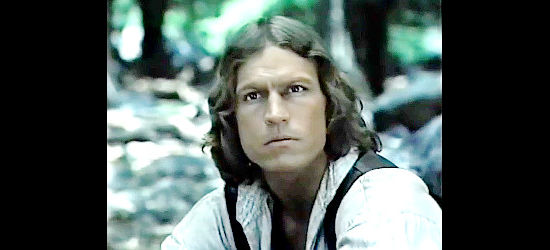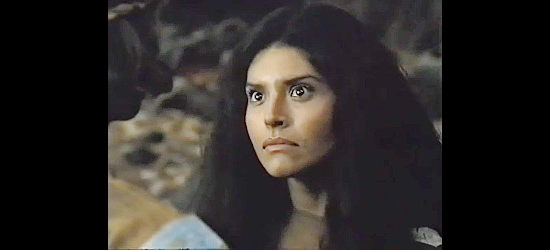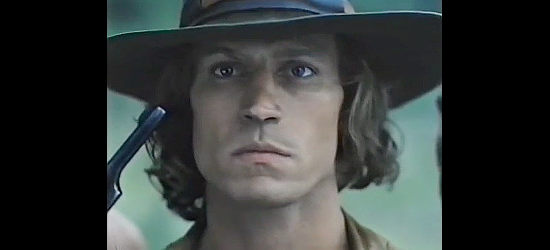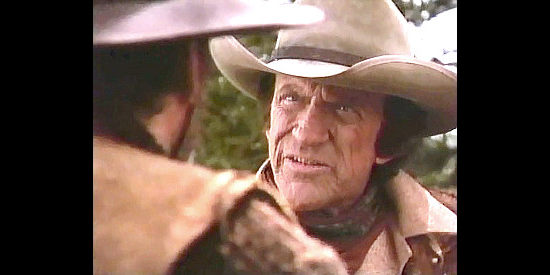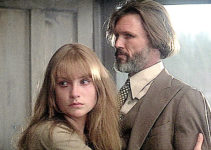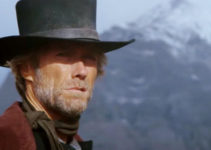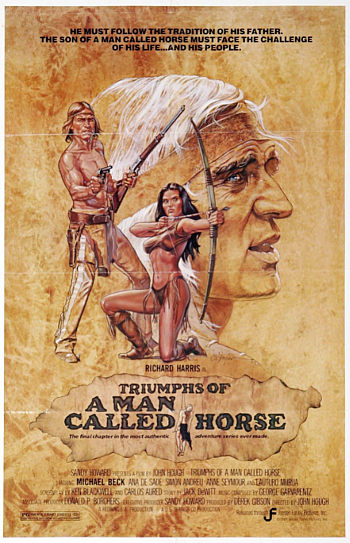 Gold has been discovered in the Black Hills, and that’s putting the treaty between whites and the Yellow Hand Sioux to the test.
Gold has been discovered in the Black Hills, and that’s putting the treaty between whites and the Yellow Hand Sioux to the test.
Man Called Horse (Richard Harris) knows war will mean self-destruction for the Sioux. But the whites gathered at Whiskey Springs are looking for any reason to encroach on Indian land.
And some renegades whites aren’t above killing a few Sioux in hopes of igniting hostilities.
Heck, they might even kill a few white settlers, then shoot arrows into their bodies and scalp them to make it look like the Indians are on the warpath even if they aren’t.
When nothing else works, they ambush A Man Called Horse, figuring that will goad the Yellow Hand into seeking revenge.
But Horse’s half-breed son Koda (Michael Beck) has just returned from white man’s school in the East. He pledges to keep the peace at the urging of his dying father.
Instead, he’ll launch a one-man guerilla campaign against the settlers, destroying their camps and their supplies in hopes of chasing them away.
He’ll get help from a pretty Crow girl named Redwing (Ana De Sade), whom he rescued from attacking whites.
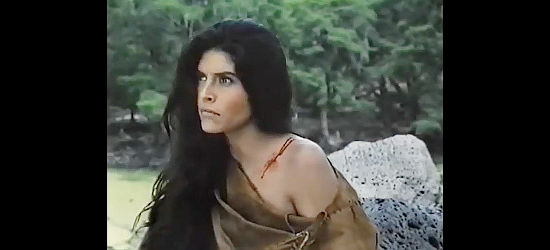
Ana De Sade as Redwing, wounded and questioning Koda’s intentions in Triumphs of a Man Called Horse (1983)
Not as grandiose in scale or concept as “A Man Called Horse” (1970) or “Return of a Man Called Horse” (1976), this film also isn’t as bad as its reputation.
In fact, it’s rather fun in a campy way, with two good-looking leads wreaking havoc on the white settlers without drawing bloodshed.
Ana De Sade had a small part in “Return” and is the feisty female half of the avenging pair. But don’t be fooled by the movie posters; she’s never that scantily clad.
Michael Beck was coming off a pair of Razzie nominations, for worst actor for his role in Xanadu (1980) and worst supporting actor for his part in Megaforce (1982).
They won’t dazzle you with their acting, but neither will Richard Harris. In fact, the film improves once he departs.
Before that happens, he keeps thinking back to his earlier days with the Yellow Hand, offering filmmakers opportunities to insert plenty of flashbacks. They include, of course, his Sun Vow ceremony.
Buck Taylor plays an Indian-hating sergeant in one of the many supporting roles he’d land in Westerns following his eight-year run as gunsmith Newly O’Brien on “Gunsmoke” (1955-1975).
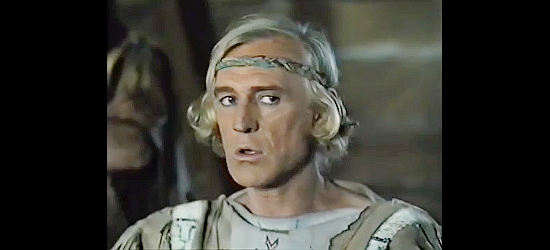
Richard Harris as A Man Called Horse, urging the cavalry to keep its word in Triumphs of a Man Called Horse (1983)
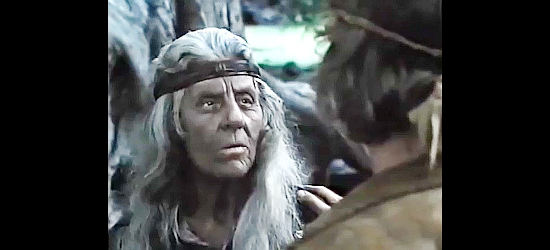
Anne Seymour as Elk Woman. medicine woman for the Yellow Hand in Triumps of a Man Called Horse (1983)
Directed by:
John Hough
Cast:
Richard Harris … John Morgan / Man Called Horse
Michael Beck … Koda
Ana De Sade … Redwing
Vaughn Armstrong … Capt. Vernon Cummings
Anne Seymour … Elk Woman
Buck Taylor … Sgt. Bridges
Lautaro Murua … Perkins
SImon Andreu … Gance
Roger Cudney … Durand
Jerry Gatlin … Winslow
John Davis Chandler … Mason
Miguel Angel Fuentes … Big Bear
Sebastian Ligarde … Mullins
Erika Carlsson … Essie
Runtime: 86 min.
Song:
“He’s Coming Back” by Rita Coolidge
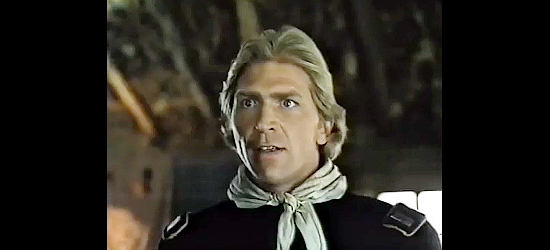
Vaughn Armstrong as Capt. Vernon Cummings, hoping to keep the peace in Triumphs of a Man Called Horse (1983)
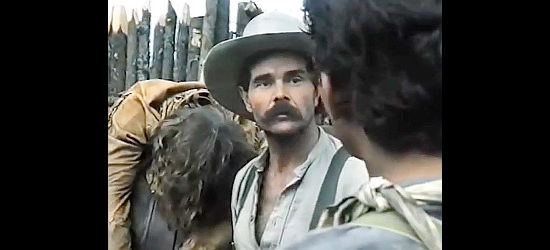
Buck Taylor as Sgt. Bridges, eager for a measure of revenge against a captured Koda in Triumphs of a Man Called Horse (1983)
Memorable lines:
Sgt. Bridges of a Man Called Horse: “Hard to believe he used to be a civilized white man. Now, he’s just a crazy red ass …”
Capt. Cummings: “Bridges!”
Bridges: “Sorry, sir. But a lot of good white men have died on account of what he taught the Sioux.”
Capt. Cummings, of two dead Indians: “There are only a few white men who are guilty.”
Horse: “When gold is discovered, captain, the few multiply.”
Redwing to Koda: “The Sioux are worse than the white man. They are the dung of the earth. They are the piss of the buffalo.”
Horse: “The treaty must not be broken.”
Koda: “Sometimes, we must fight in order to find peace. Power is all the white man understands.”
Horse: “War is not the answer. It is the road to self-destruction.”
Sgt. Bridges to Koda: “You heathens are all alike. Always carvin’ on yourselves. You must like pain. I got some pain for you.” He reaches for a branding iron. “I’m gonna put something on you that won’t rub off. … You’re gonna have so many marks on you, they’re gonna call you spotted pony.”
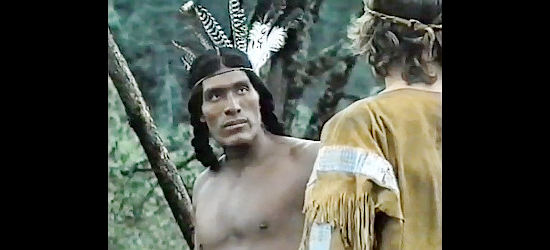
Miguel Angel Fuentes as Big Bear, ready to seek revenge for Horse in Triumphs of a Man Called Horse (1983)
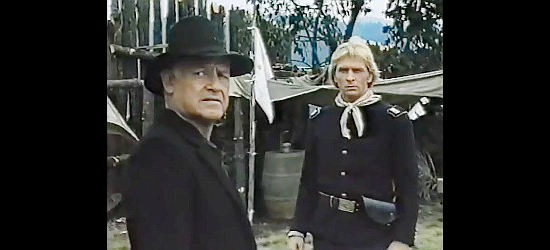
Lautara Murua as Preacher Perkins and Vaughn Armstrong as Capt. Cummings, trying to keep the settlers in line in Triumphs of a Man Called Horse (1983)
